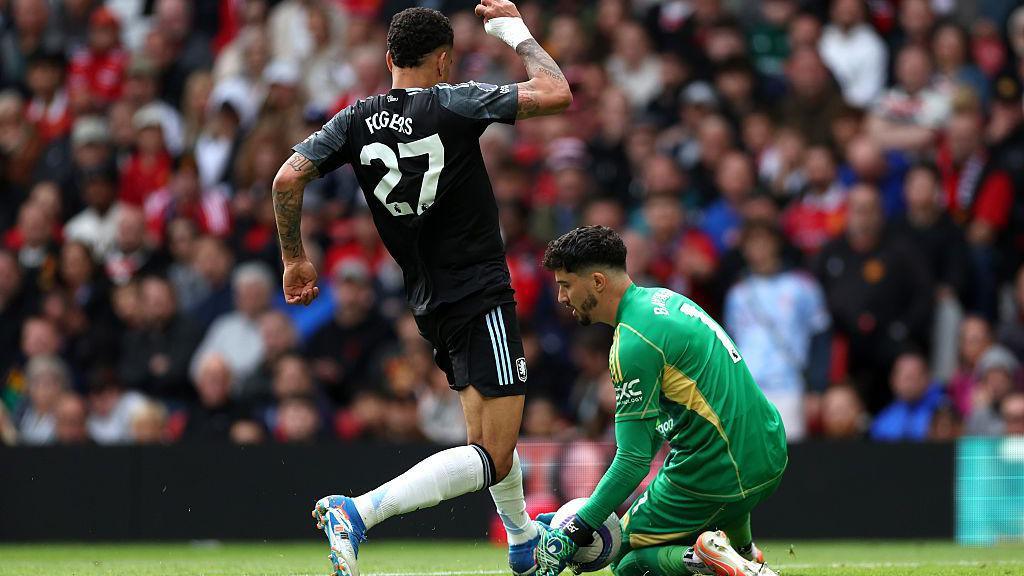**Aston Villa’s Complaint Over Refereeing Controversy**
Aston Villa has lodged a formal complaint with the Professional Game Match Officials Limited (PGMOL) concerning a significant refereeing blunder that occurred during their recent match against Manchester United. Referee Thomas Bramall’s decision-making has been at the center of the controversy, particularly following Villa’s heartbreaking 2-0 loss, which consequently deprived them of a coveted place in the Champions League next season.
The match was already tumultuous for Aston Villa, who found themselves down to ten men after goalkeeper Emiliano Martinez’s dismissal. In a pivotal moment, Villa appeared to score when Morgan Rogers managed to push the ball past United goalkeeper Altay Bayindir and slot home. However, referee Bramall ruled the goal out for a foul, incorrectly believing Bayindir was in control of the ball. Despite video evidence to the contrary, VAR could not intervene because play had been halted before the ball crossed the goal line.
This crucial decision had an immediate impact on the match, as, shortly afterward, Manchester United took advantage when Amad Diallo scored the opener. Christian Eriksen then sealed Villa’s fate with a late penalty, marking a bitter end to Villa’s aspirations of qualifying for Europe’s elite competition.
Damian Vidagany, Aston Villa’s director of football operations, expressed the club’s dissatisfaction with Bramall’s officiating, especially given the high stakes of such a crucial match. Vidagany highlighted the troubling fact that Bramall is one of the least experienced referees in the Premier League and articulated confusion as to why more seasoned officials were not assigned to this vital fixture.
He stated, “We will lodge a complaint—not about the decision but about the referee’s selection.” This sentiment echoes the broader concern within the club that the quality of officiating could jeopardize their ambitious efforts.
Following the match, Aston Villa released an additional statement stressing the need for an experienced referee, especially given the extremely high stakes surrounding this fixture. They underscored that the disallowed goal against United could be viewed as a major factor in their failure to secure a Champions League spot.
As Villa navigates the fallout from this decision, they find themselves in a precarious financial situation. The club has accumulated considerable losses—specifically, £678 million—second only to Chelsea in Premier League history. Missing out on Champions League football not only stings competitively but also has significant financial implications. Champions League participation yields revenue that is crucial for the club, which has been a significant investor in player acquisitions since its promotion to the Premier League in 2019.
Villa has been placing substantial financial bets, outlaying over £868 million on player transfers while being backed largely by their owners, Wes Edens and Nasser Al-Khelaifi, who absorbed costs without taking on debt. However, Villa’s wage-to-revenue ratio recently reached an alarming 96%, necessitating player sales to maintain compliance with financial regulations.
The pressure is now on the Villa management as they look at potential player departures to recoup funds. Players like Emiliano Martinez and Leon Bailey are prospective exits, especially as the club assesses its financial viability without Champions League income.
In conclusion, Aston Villa’s discontent stems from not only a questionable refereeing decision but also the broader implications that come from missing out on European football. This incident highlights the delicate intersection between officiating integrity and the financial realities faced by clubs in the competitive landscape of the Premier League. As discussions continue about referee selections and the use of VAR, Villa hopes that their complaint will lead to more stringent officiating standards that adequately reflect the stakes involved at this level of the game.



